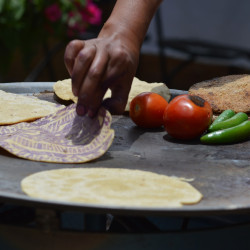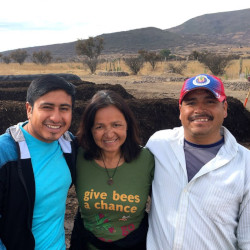As it has since 2015, our sister organization, Regeneration International, sent a delegation to the international climate summit. This year’s, COP24, was held in Katowice, Poland.
Two of our delegates, Andre Leu and Hans Herren, were interviewed by Grist about their personal farming experiences, and also the role of organic regenerative agriculture in solving the climate crisis.
Leu, RI’s international director, talked about his lifetime of farming in Australia. Herren, a member of the RI Steering Committee, described the impact of climate on his farm operations in California.
Leu and Herren both called for more farmer-to-farmer training to help farmers become part of the climate solution—and in the process, become both more resilient and more profitable.
Read ‘Agriculture is a big climate problem. Now farmers are sharing solutions.’
Support Regeneration International with a tax-deductible donation
















